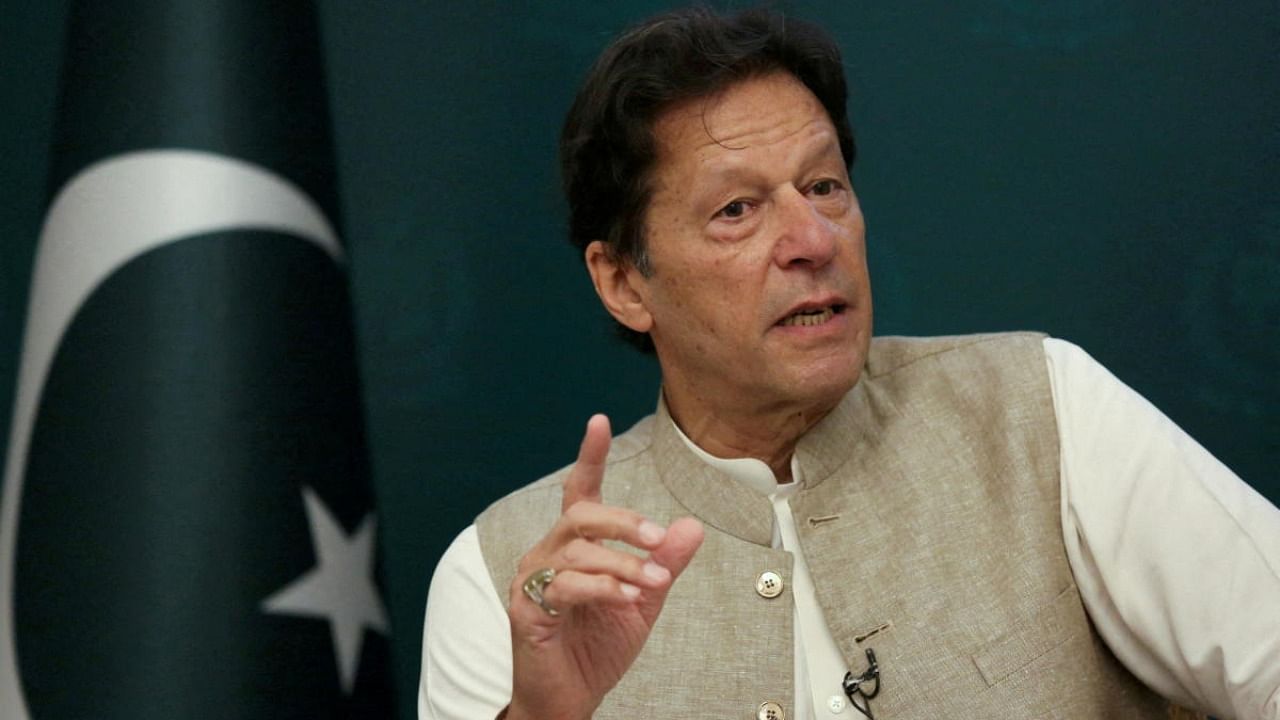
Amid talks of a no-confidence motion and protests by the Army and political opponents, Pakistan PM Imran Khan is reportedly going to resign on Sunday, likely bringing an end to his troubled administration. A five-member bench of the Pakistan Supreme Court, headed by Chief Justice of Pakistan Umar Ata Bandial, will be hearing the presidential reference seeking the top court's opinion on Article 63-A of the country's Constitution, which deals with the disqualification of parliamentarians, while the military has distanced itself from politics.
Here are 10 things to know about the power struggle in the country.
1- The no-confidence motion against Khan was supposed to be brought up in the March 25 session of the National Assembly, but was not raised on the day. Now, Interior Minister Sheikh Rasheed has said that the motion will most likely be held on April 3 or 4, buying Khan some time to try and salvage the situation, or to resign.
2- Sheikh Rashid said that he has advised Khan to call elections after presenting the Federal Budget for the 2022-23 fiscal year, as his popularity has increased following the Opposition's submission of a no-trust resolution against him.
3. Pakistan Muslim League-Nawaz (PML-N) Vice-President Maryam Nawaz accused Khan and his wife Bushra Bibi of receiving bribes to the tune of PKR 6 billion, terming it as a “mother of all scandals.”
4. At least 50 ministers belonging to the ruling Pakistan Tehreek-e-Insaf (PTI) have gone 'missing from the political front', according to a report by the local Express Tribune newspaper. More than 50 of the federal and provincial ministers have not been seen in public since the opposition began stacking up perils against Khan.
5. Khan claimed that no regime in Pakistan had performed in the last 50 years as well as his government did during its three-and-a-half-year rule, citing higher tax collections, crop yields and increased income to farmers in a speech in Khyber-Pakhtunkwa's Mansehra district.
6. The Pakistan Tehreek-e-Insaf government has filed a petition in the Supreme Court seeking clarification on a constitutional point regarding disqualification of the dissident lawmakers who have threatened to vote against Khan during a no-trust motion, under Article 63-A of the Constitution.
7. Pakistan's Chief Justice Umar Ata Bandial said that discarding lawmakers' vote during the no-confidence motion against the prime minister would be "insulting" and a member of the National Assembly cannot be barred from voting.
8. Khan has been accused of deliberately delaying the extension of Army chief General Qamar Javed Bajwa's tenure in 2019 - to taint the process in "controversy," and that his party was behind a social media campaign targeting the country's armed forces.
9. The country's military establishment, which was believed to be the driving force behind Imran Khan's government, seems to have pulled back its support, maintaining that the army would retain the neutral ground in the current political situation unfolding in the country, and warning him 'not to drag them into his politics as the military has nothing to do with domestic politics.'.
10. Pakistan National Assembly has 342 members, and Imran Khan requires the support of at least 172 members to win the no-confidence motion. Reports say that at least two dozen disgruntled lawmakers are staying at Sindh House in Islamabad which is a property of the Sindh government and run by the Pakistan Peoples Party, making it very difficult for Khan to survive the motion if it is brought up in the National Assembly.
(With agency inputs)
Watch latest videos by DH here: